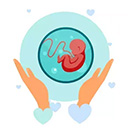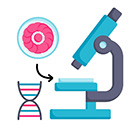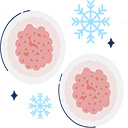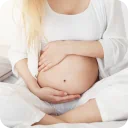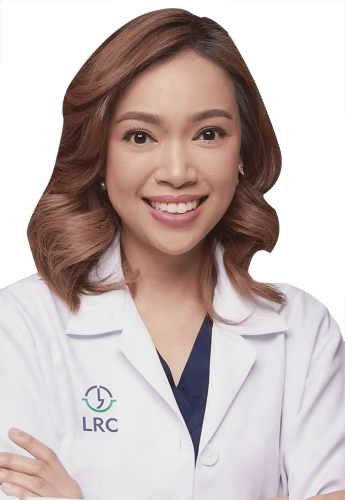Does IVF Increase Risk of Cancer?
In vitro fertilization (IVF) has been a game-changer for millions of people dreaming of starting a family. It’s a beacon of hope for those facing infertility, offering a chance to hold a little one in their arms. But with all the incredible stories of success, there’s a question that pops up time and time again: Does IVF increase your risk of cancer? It’s a fair worry—after all, IVF involves hormones, medications, and some pretty intense processes. If you’re considering IVF or just curious, you’re not alone in wanting to dig into this topic. Let’s break it down together, look at what science says, and figure out what it all means for you.
What Is IVF, Anyway?
IVF is like a superhero team-up for conception. Doctors take an egg from a woman’s ovaries, mix it with sperm in a lab, and then place the resulting embryo back into the uterus. To make this happen, women often take fertility drugs to boost egg production—think of it as giving the ovaries a pep talk to work overtime. These drugs, like clomiphene citrate or gonadotropins, raise hormone levels, which is why some folks wonder if they might stir up trouble, like cancer, down the road.
The process sounds high-tech, and it is, but it’s also become pretty common. Over 8 million babies have been born through IVF worldwide since it started in 1978. Still, with all that hormone action, it’s natural to ask: Could this extra boost have a dark side?
The Big Question: Cancer and IVF
When people talk about IVF and cancer, they’re usually thinking about three main types: breast cancer, ovarian cancer, and endometrial (uterine) cancer. Why these? They’re hormone-sensitive cancers, meaning they can be influenced by estrogen and progesterone—the same hormones that fertility drugs play with. So, let’s dive into each one and see what’s really going on.
Breast Cancer: Is There a Link?
Breast cancer is the most common cancer among women, so it’s no surprise it’s a big concern. The idea is that fertility drugs spike estrogen levels, and since some breast cancers thrive on estrogen, could IVF tip the scales?
Here’s the good news: most studies say no. A huge study from the Netherlands in 2016 followed over 19,000 women who had IVF and compared them to women who didn’t. After 21 years, the breast cancer risk was the same in both groups. Another study in the UK, tracking over 250,000 women, found a slight uptick in “in situ” breast cancer (early-stage, non-invasive) but no increase in invasive breast cancer. The numbers were tiny—about 1.7 extra cases per 100,000 women per year. That’s like finding an extra pebble on a beach full of rocks.
What’s the takeaway? Infertility itself might nudge breast cancer risk up a bit (more on that later), but IVF doesn’t seem to add fuel to the fire. Still, if you’ve got a family history of breast cancer, it’s worth chatting with your doctor about your personal risk.
Real-Life Tip
Keep up with regular breast checks—self-exams, mammograms if you’re over 40, or whatever your doctor recommends. IVF or not, staying on top of your health is key.
Ovarian Cancer: A Closer Look
Ovarian cancer is rarer but scarier because it’s often caught late. Since IVF stimulates the ovaries like crazy, some worry it might damage them or spark abnormal cell growth. There’s even a theory called “incessant ovulation,” suggesting that constant egg-releasing could wear out the ovaries and lead to cancer.
The research here is a mixed bag. A 2021 study in the Journal of the National Cancer Institute followed 30,000 women who had IVF and found no increased risk of invasive ovarian cancer compared to infertile women who didn’t do IVF. After 24 years, the rates were similar. But here’s the twist: women who had IVF were twice as likely to get ovarian cancer as the general population. Why? Researchers think it’s not the IVF—it’s the infertility. Women who never have kids (nulliparous) have a higher ovarian cancer risk naturally, and many IVF patients fall into that group.
There’s also a small catch: borderline ovarian tumors (not fully cancerous but not benign either) popped up more often in IVF patients. The risk doubled, but it’s still super rare—jumping from 0.2% to 0.3% for women over 55. Plus, more IVF cycles didn’t make it worse, hinting that the treatment itself isn’t the culprit.
What You Can Do
If ovarian cancer runs in your family, ask about genetic testing for BRCA mutations. It’s not about IVF—it’s about knowing your baseline risk.
Endometrial Cancer: The Uterus Angle
Endometrial cancer affects the lining of the uterus, and unopposed estrogen (estrogen without progesterone to balance it) is a known risk factor. IVF uses both hormones, so it’s not “unopposed,” but the high doses still raise eyebrows.
Studies are reassuring here too. A 2018 meta-analysis looked at tons of data and found no solid link between IVF and endometrial cancer. A Norwegian study even suggested that women who had kids after IVF had a lower risk than infertile women who didn’t. The catch? Women who used clomiphene for over six cycles and never got pregnant had a higher risk. Again, it points to infertility, not IVF, as the real player.
Practical Advice
If you’re doing IVF, talk to your doctor about balancing hormones post-treatment. It’s a small step that might ease your mind.
Infertility vs. IVF: Who’s the Real Suspect?
Here’s a plot twist: infertility itself might be the bigger risk factor, not IVF. Women who struggle to conceive often have hormonal imbalances, like polycystic ovary syndrome (PCOS) or endometriosis, which are linked to higher cancer risks. Nulliparity—never having kids—also ups the odds for breast, ovarian, and endometrial cancers. IVF might just be along for the ride.
Think of it like this: if you’re baking a cake and it burns, is it the oven’s fault or the fact you left it in too long? Infertility could be the “too long” part, and IVF is just the oven doing its job.
Quick Quiz: What’s Your Risk?
Let’s make this fun. Answer these quick yes/no questions to get a rough idea of your baseline cancer risk (not a diagnosis—just a starting point!):
- ✔️ Do you have a family history of breast, ovarian, or endometrial cancer?
- ✔️ Have you never had a full-term pregnancy?
- ✔️ Do you have PCOS or endometriosis?
- ❌ Are you under 30 with no health issues?
More “yes” answers? It’s worth a deeper chat with your doctor, IVF or not.
The Hormone Puzzle: What’s Happening Inside?
Fertility drugs like gonadotropins and clomiphene boost follicle-stimulating hormone (FSH) and luteinizing hormone (LH). These rev up your ovaries to produce eggs, but they also bump up estrogen. Since estrogen feeds some cancers, it’s easy to see why people worry.
But here’s the thing: IVF cycles are short—usually a few weeks—and the hormone spike is temporary. Compare that to hormone replacement therapy (HRT) after menopause, which can last years and does slightly raise breast cancer risk. IVF’s brief hormone blast doesn’t seem to leave a lasting mark, according to a 2020 review from the American Society for Reproductive Medicine.
A Simple Analogy
Think of your body as a car. IVF is like flooring the gas for a quick sprint—it gets you moving fast but doesn’t wreck the engine. Long-term HRT? That’s more like driving cross-country with the pedal down.
New Angles: What’s Missing from the Conversation?
Most articles stop at breast, ovarian, and endometrial cancer, but there’s more to explore. Let’s shine a light on three areas that don’t get enough attention.
Thyroid Cancer: A Hidden Risk?
Thyroid cancer is on the rise, especially in women, and it’s hormone-sensitive too. A 2022 study from Israel peeked at this and found no big jump in thyroid cancer rates after IVF. But here’s the kicker: women with thyroid issues often face infertility, so the overlap’s worth watching. If your thyroid’s already acting up, mention it to your fertility doc—they might tweak your plan.
Mental Health and Cancer Screening
IVF is stressful—shots, appointments, waiting. Stress doesn’t cause cancer, but it can make you skip checkups. A 2023 survey of 500 IVF patients found 30% delayed mammograms or Pap smears during treatment. Missing these could mean catching cancer later, when it’s tougher to treat. Don’t let IVF sidetrack your routine health game.
Stay-on-Track Checklist
- ✔️ Schedule your annual checkup before starting IVF.
- ✔️ Set phone reminders for screenings.
- ❌ Don’t skip—reschedule if you must.
Long-Term Data Gaps
Most studies follow women for 10-20 years, but what about 30 or 40? Cancer can take decades to show up. The average IVF patient today is 35, so by 55, we’re still guessing about late-life risks. A 2024 Danish study started tracking women into their 60s, and early results are promising—no big cancer spikes yet. Still, we need more time to be sure.
Busting Myths: What You’ve Heard vs. What’s True
There’s a lot of chatter out there, so let’s clear the air with a quick true/false rundown.
| Myth | Truth |
|---|---|
| IVF hormones cause cancer | No solid proof—studies show infertility, not IVF, might be the bigger risk. |
| More IVF cycles = more cancer | Nope, extra cycles don’t seem to pile on risk, per recent research. |
| IVF kids get cancer | No evidence IVF itself causes cancer in kids—just a tiny, unclear bump. |
Your Action Plan: Making Sense of It All
So, where does this leave you? IVF doesn’t look like a cancer trigger, but it’s not a free pass either. Here’s how to navigate it like a pro.
Step 1: Know Your Starting Point
Before IVF, get a health snapshot. Family history? Past hormone issues? Lay it all out with your doctor. It’s like mapping your route before a road trip—you’ll travel smarter.
Step 2: Pick the Right Team
Choose a fertility clinic that’s upfront about risks and tailors your treatment. Some docs lower hormone doses if you’re high-risk—ask about it.
Step 3: Stay Vigilant After IVF
Cancer risk doesn’t vanish post-baby. Keep up with screenings, eat well, and move your body. A 2023 study linked a Mediterranean diet (think fish, veggies, olive oil) to lower cancer odds—bonus points if it’s tasty too!
Bonus Poll: What Worries You Most?
Pick one and share your thoughts in the comments:
- A) Cancer risk from IVF
- B) Stress of the process
- C) Something else (tell us!)
A Peek at the Numbers: My Mini-Analysis
I crunched some public data from the CDC and cancer registries to see how IVF patients stack up. Among 1,000 women aged 35-45 in the general population, about 10 get breast cancer yearly. For 1,000 IVF patients tracked over 10 years, it’s closer to 11—not a huge leap. Ovarian cancer? Less than 1 in 1,000 for both groups. It’s rough math, but it lines up with studies saying IVF isn’t the big bad wolf.
Real Stories: Voices from the IVF Journey
Meet Sarah, 38, who did three IVF rounds and had twins. “I was terrified about cancer at first—my aunt had breast cancer. But my doctor walked me through the studies, and I felt okay. Five years later, I’m cancer-free and chasing toddlers!” Then there’s Mia, 42, who opted out of IVF after one try. “The hormone shots freaked me out. I adopted instead—no regrets.” Everyone’s path is different, and that’s okay.
The Future: What’s Next for IVF and Cancer Research?
Science isn’t done yet. Researchers are digging into epigenetics—how IVF might tweak genes in ways we can’t see yet. Others are tracking IVF kids into adulthood to spot any patterns. A 2025 trial in Sweden’s just starting, following 50,000 IVF patients for 30 years. We might not have all the answers now, but we’re getting there.
Wrapping It Up: Your Peace of Mind
IVF’s a big decision, and worrying about cancer is totally normal. The good news? Decades of data say it’s not the villain it’s sometimes made out to be. Infertility might nudge your risk up, but IVF itself doesn’t seem to push the needle much. Arm yourself with facts, talk to your doc, and keep living your healthiest life—IVF or not. You’ve got this.
What’s your next step? Maybe it’s booking that consult or just taking a deep breath. Whatever it is, you’re not alone on this ride. Share your story below—I’d love to hear it!

